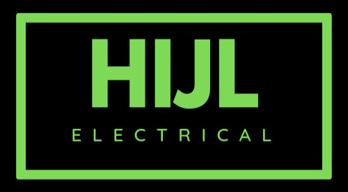

What is a EICR?
An EICR, or Electrical Installation Condition Report, checks whether your property’s wiring and electrics are safe. It is also known as Landlord Safety Test, Electrical Safety Certificate, Fixed Wire Testing or the Homebuyer’s Test.
Whether it’s a business or a domestic property you rent out; your electrical installation should always be covered by an in date EICR.
To make sure your home is safe, we recommend you have an EICR every 5 years. If you rent out a property, you should have one every five years, a sooner re-inspection may be required if specified in the most recent report or for certain commercial properties.
Is a EICR mandatory?
It depends on what the EICR inspection is for. EICRs are mandatory for some buildings, but not all of them.
EICR for commercial landlords
An EICR for a commercial building like a shop, factory or office does not have to be carried out by law. Although you do have a legal responsibility to ensure employees, customers and tenants are kept safe.
Old, faulty and malfunctioning electrical installations not only cause electric shocks but also pose a fire risk. An EICR is the most comprehensive way of keeping your installations safe.
EICR for residential landlords
EICR inspections are required by law for rental properties and HMOs in England, Scotland, and Wales in order to protect tenants and their possessions.
EICR for residential owner occupiers
It’s not a legal requirement to get an EICR in the same way as a rental property. However as the homeowner, it is your responsibility to ensure that your property is safe.
For example, if a faulty electrical fitting in your home caught fire and ended up damaging a neighbour’s house, you would be responsible for the damage.
If you claim damage on your home insurance, your insurer may refuse your claim if they believe your electrical systems have not been maintained.
If you are moving to a new house (that isn’t a new build), we’d recommend that you get an EICR carried out when you move in. This will reassure you that the electrical installation in your new home is up to standard.
If you are moving into a new build or a property that has been completely rewired, you will be given an Electrical Installation Certificate (EIC). This will show that your electrical installation complies with BS 7671 (IEE Wiring Regulations).
What happens during an inspection?
During an EICR inspection, a qualified electrician or electrical engineer will inspect the electrical installations in your building.
The electrical engineer will carry out a visual inspection, checking for cracks, breaks and signs of overheating. Electrical testing will then be carried out where voltages and currents are used to check the safety of the different circuits.
If issues are found, they will be recorded and detailed in the report. This will then discussed with yourself.
Do you need to turn the power off during the EICR?
EICR testing involves both live (power on) and dead (power off) tests. Most of the testing is carried out while your electrical system is live. However, to carry out some tests, the power needs to be turned off.
As long as they are clearly labelled, circuits can be powered off individually, meaning there will be less disruption in your building.
However if it is not possible to switch off power On the EICR survey report, there is a section called ‘extent and limitations of inspection and testing’.
If certain circuits can’t be turned off or accessed by the electrical engineer (for example, wiring under floors or at height), then these are included in this section.
The electrical engineer will highlight if there are any limitations on-site and communicate/agree these with the site contact. They will then detail in the report if there is anything they are unable to test or only partially test.
Plan ahead for the best EICR results
If the power cannot be switched off or certain circuits cannot be accessed, our electrical engineers will still be able to carry out the majority of testing for you.
However, we would recommend planning so you can test as much of the installation as possible on the day. This may involve ensuring access to the full building (for example the loft and the basement), and advising staff and tenants that electrical equipment may need to be temporarily turned off.
This will ensure that your EICR inspection is as comprehensive as possible and does not miss anything out.
EICR Booking Form
Please only complete this form if requested by a member of HIJL team.
Please take your time to check all spelling as this information will be used to create your certificate and any other paperwork.


